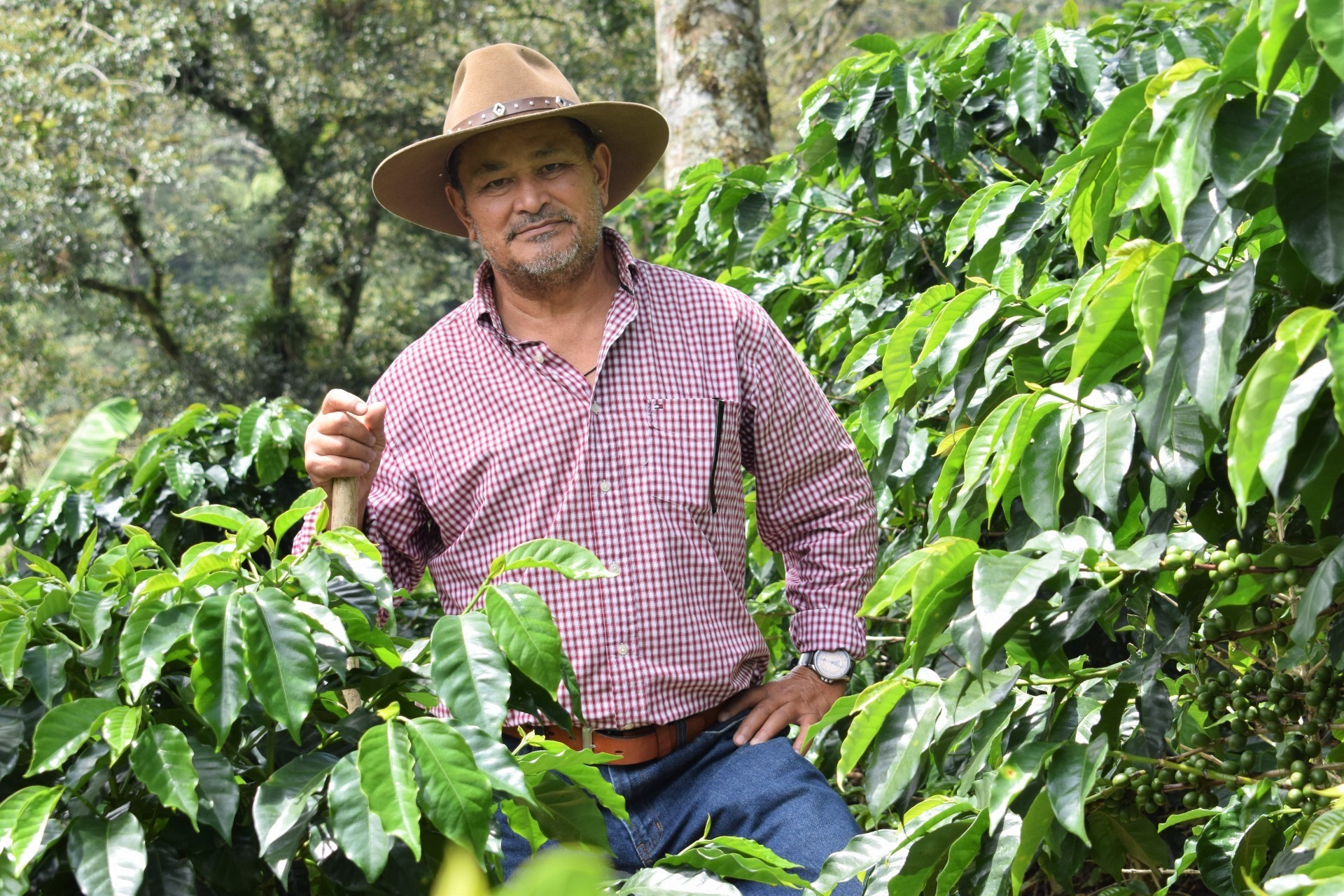HONDURAS FTO DAVID CARDONA GRAINPRO
Bags 0
Warehouses Oakland
Flavor Profile Cherry, panela, milk chocolate, syrupy
Out of stock
About this coffee
Grower
David Cardona Rodríguez | Finca El Abuelo
Altitude
1478 masl
Variety
Catuai, Ihcafe 90, Lempira, and Parainema
Soil
Clay loam
Region
El Trapiche, Marcala, La Paz, Honduras
Process
Fully washed and dried on raised beds
Harvest
November - February
Certification
Fair Trade | Organic
Coffee Background
David Cardona Rodríguez was first initiated in coffee production in El Trapiche, a community within Marcala in the department of La Paz where his wife had a manzana (about 0.8 hectares) of aromatic herbs. From this property the couple decided to expand the farm by buying additional land and planting coffee. David confesses that he didn’t have much experience with coffee farming and processing at the time, having focused on other pursuits, so he sought out his local organic growers’ association, COMSA, for guidance on farm management and coffee sales.
The name of David’s farm, “El Abuelo” (“the grandfather”), is the same name as the farm his own father had in the department of Santa Bárbara, north of La Paz, where David would take his children to visit, to their total delight. Now, as his own grandchildren are constantly visiting his own farm and sharing in the magic, he thought it only proper to carry the name himself. He loves watching his grandkids so excited to see everything on the farm, tasting oranges and plums and bananas, playing in the shade of the canopy, experiencing all the tastes and smells of the coffee process, and seeing the other products on the farm—grains, corn, beans, all of which play a part in the extended family’s diet.
Washed coffee at Finca El Abuelo begins with careful cherry selection and same-day depulping. Fermentation is typically 24 hours, after which the parchment is washed and moved to David’s solar dryer for drying, a process of 10-12 days. This particular lot we selected is rich with black cherry and vanilla cream sweetness and has an inviting complexity reminiscent of toasted almond and black tea.
El Trapiche is just outside the municipality of Marcala, in Honduras’ La Paz department--a mountainous region with pacific ocean climate influence very close to the border with El Salvador. This part of the country is extremely well respected for coffee, so much so that in 2005 the region received Honduras’ first Denominación de Origen (DO) for coffee which, similar to American Viticulture Areas (AVAs), certifies the region’s terroir and final products as being authentic, so as to protect it from adulteration or imitation. The DO designation applies to Honduras’ mountainous southwestern region and includes parts of Intibucá, La Paz, and Comayagua, although it is simply named “DO Marcala” after the town itself, considered the region’s capital of coffee heritage.
David is an associate of Café Orgánico Marcala Sociedad Anónima, or COMSA, a large and well-respected growers association based in the town of Marcala. COMSA was founded in 2001 with the equivalent of $365 USD and 61 small coffee producers, 12 women and 49 men. Today the organization has more than 1,500 associate coffee farmers covering an area of 5,800 hectares, maintains multiple certifications, and is considered one of Honduras’ model business organizations.
From the beginning COMSA has promoted organic agricultural methods and quality of coffee as fundamental values for all participating producers. This was a reaction to what the founders saw as an over-reliance on agro-toxins which threatened the longevity of family farms (often a family’s sole asset) and the physical health of the people farming one of their country’s most gifted coffee terroirs. In 2012 the group acquired their own parcel of farmland and built “Finca Biodinámica La Fortaleza” (“Biodynamic Fortress”), a demonstration farm for testing sustainable techniques, as well as designing optimal farm inputs that can be created using common by-products of coffee farming—the results of which are shared throughout COMSA’s farmer network. In recent years COMSA has begun to focus more on what they call “La Finca Humana” (the human farm): an increased consciousness within the farmer that seeks to integrate their physical and social lives with the natural environment around them using observation, investigation, analysis, reflection, and activities that connect farmers with one another and the planet.







